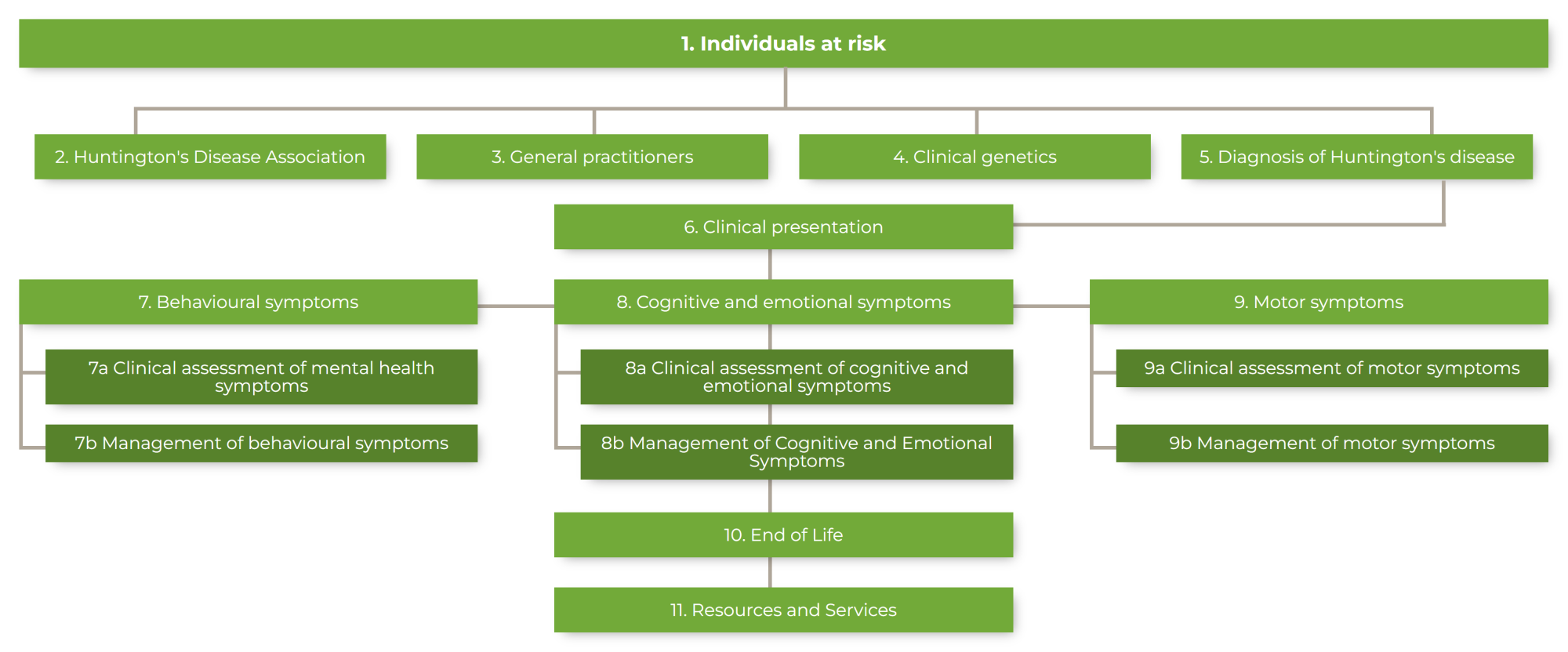We’ve been working with people with Huntington’s disease and their families for over 20 years. We have a broad knowledge of the disease but the important thing to remember is every Huntington’s journey is different.
The patient journey
The Huntington’s journey can vary a lot from person to person – even members of the same family. But there are some common interventions that can help at different stages.
We’ve produced an example patient journey that charts the progression of the disease alongside the interventions that may be available for patients. However, services available for people with Huntington’s vary across England and Wales, so not all people will have access to every service that is recommended.
If you’d like to discuss the patient journey for one of your patients, our Specialist Huntington’s Disease Advisers can help.

Behavioural symptoms
Below are some of the symptoms that you or the person you care about may start to notice.
- Irritability
- Aggression
- Obsessive-compulsive disorders
- Anxiety and apathy
-
Depression
Who can help?
There are lots of different people who are helpful at this stage of your Huntington's journey including the Huntington's Disease Association and your GP.
- Community mental health team
- Psychiatrist / Community psychiatric nurse
- Psychologist
- Specialist Huntington's service
- Social care
Symptom management
- Medication
- Structure and routine
- Environmental enrichment
Cognitive symptoms
Below are some of the symptoms that you or the person you care about may start to notice.
- Difficulty in switching attention
- Inability to concentrate on more than one thing at a time
- Delayed processing skills
- Loss of drive, initiative and spontaneity
- Problems with recognition and recall
- Impulsive behaviour
- Inability to read facial expression
- Impaired executive functioning
Who can help?
There are lots of different people who are helpful at this stage of your Huntington's journey including the Huntington's Disease Association and your GP.
- Psychologist
- Counsellor
- Neuropsychologist
- Psychiatrist
- Specialist Huntington's service
- Social care
Symptom management
- Medication
- Cognitive Behavioural Therapy (CBT)
- Support worker/care package
- Aide memories
- Alarms
- Complementary Therapies
- De-escalation techniques
Motor symptoms
Below are some of the symptoms that you or the person you care about may start to notice.
- Chorea or other involuntary movements
- Slowness of movement
- Muscle spasms
- Rigidity
- Problems with speech
- Difficulty swallowing
Who can help?
There are lots of different people who are helpful at this stage of your Huntington's journey including the Huntington's Disease Association and your GP.
- Neurologist
- Speech and language therapist (SALT)
- Dietitian
- Physiotherapist
- Occupational therapist
- Wheelchair services
- Specialist Huntington’s disease services
- Social care
Symptom management
- Medication
- Aids and adaptations
- Specialist seating, beds and mattresses
- Care package
- Massage and complementary therapies
- Continuous assessment



